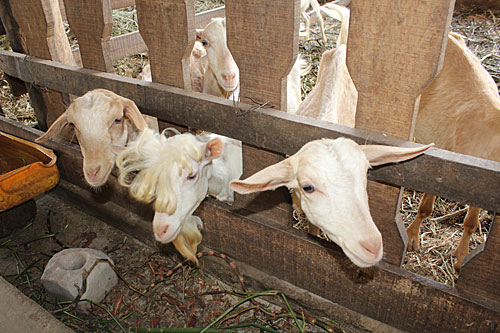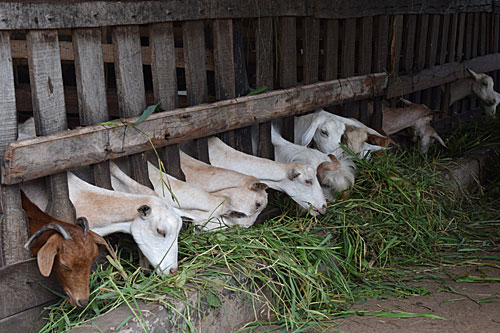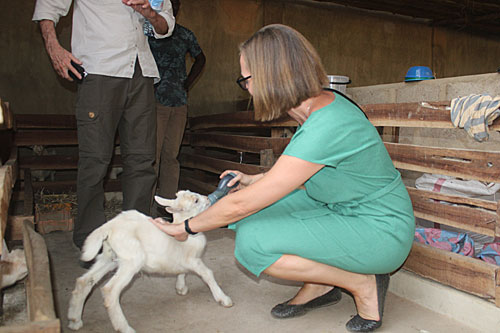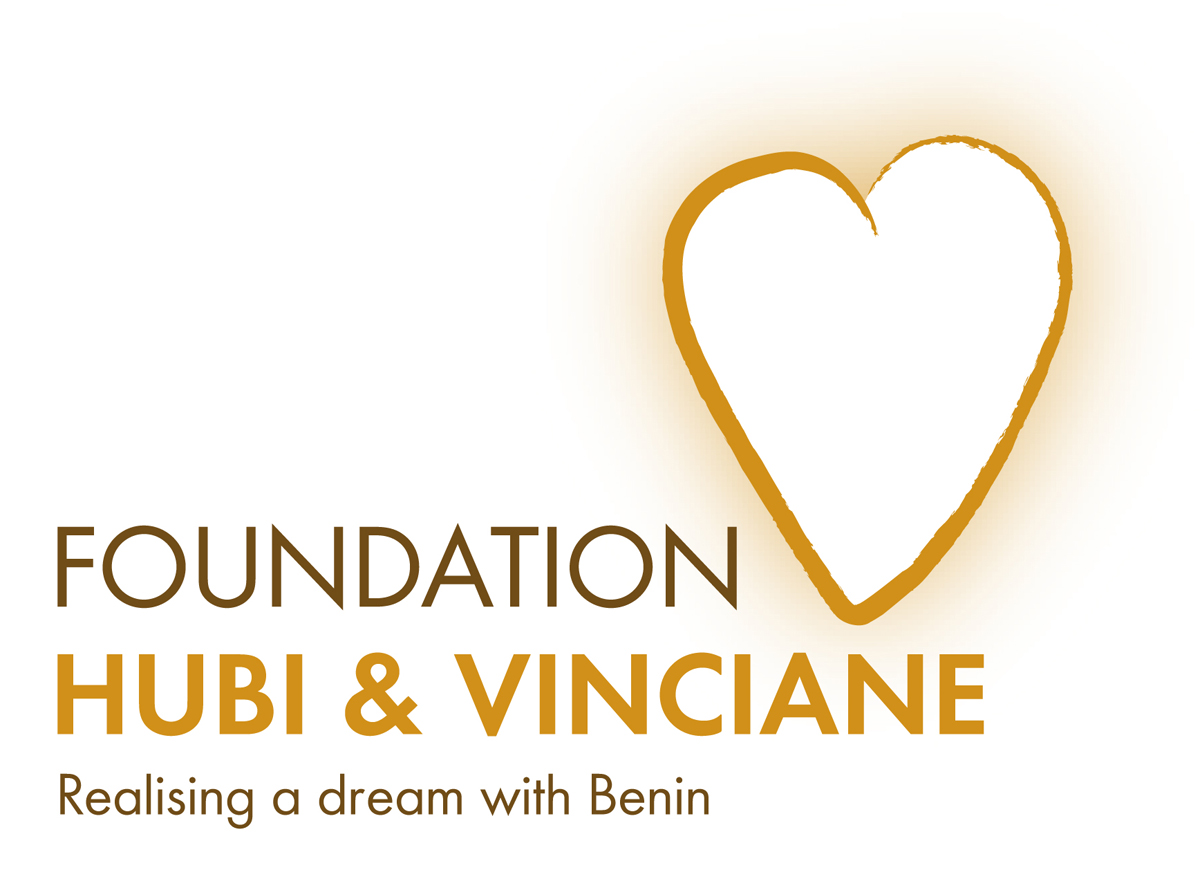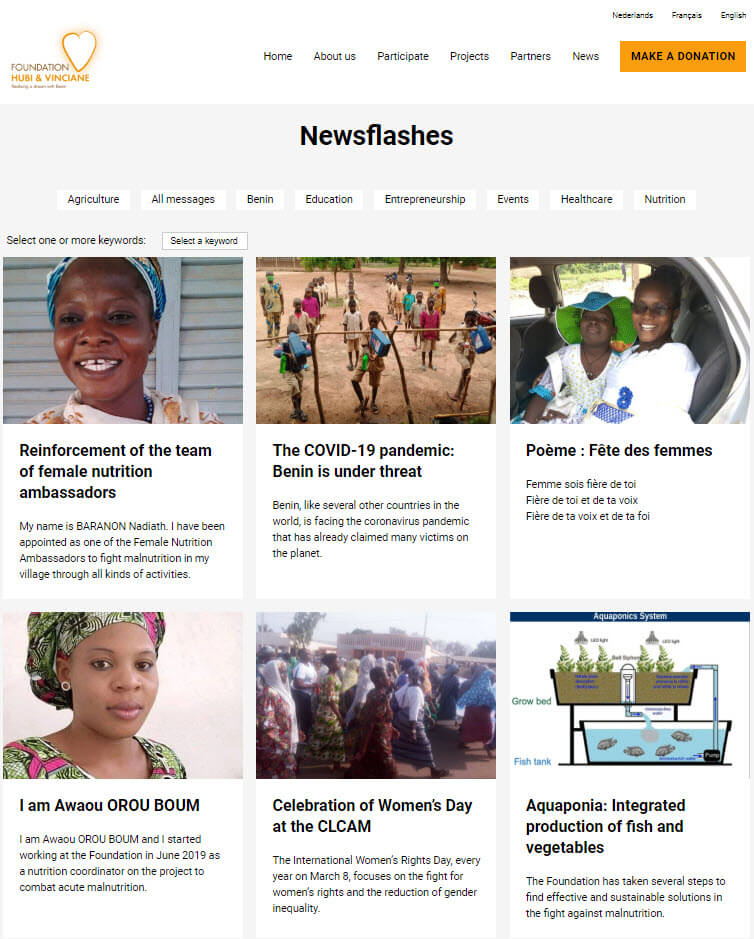Dairy Goats in the Incubation Center
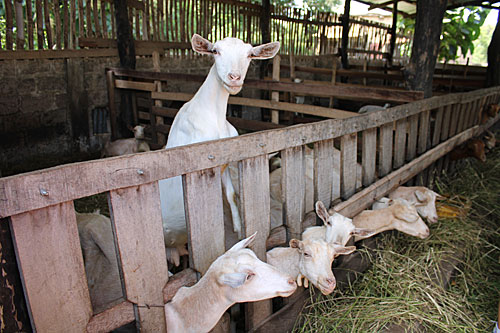
The project
The food system in Benin is primarily rural and traditional. Farmers work on small plots with often low yields. While there is generally no food shortage in most places, the available food is usually of insufficient quality and needs more variety. The consumption of vegetables, fruits, meat, and animal proteins is inadequate.
Launching the dairy goat project at the incubation centre, the Hubi & Vinciane Foundation aims to inspire and motivate farmers to raise dairy goats. Goat milk and cheese are less known in Benin, but they are healthy and nutritious additions to the Beninese diet.
Goal
The dairy goat project is one of the Hubi & Vinciane Foundation’s initiatives to combat malnutrition in Benin.
Project Description
The dairy goat project focuses mainly on producing, selling, and processing goat milk. Our team started with 19 goats and three bucks. After nine months, the herd had already grown to nearly fifty animals. It consists of a mix of Saanen and Maradi breeds, known for their high milk production and quality meat.
The goats are housed at the incubation centre, where an agricultural expert cares for them daily.
Results and Development
Between October 2023 and the end of June 2024, the goats produced more than 1,000 litres of milk. A portion of it was used to feed the kids, while the rest was sold. On average, one dairy goat produces 15 litres per day or 105 litres per week.
An additional advantage of the project is that goat manure can be used as organic fertilizer for vegetable gardens.
Farmers who decide to keep goats have a healthy addition to their family’s diet and generate a good source of income by selling the surplus.
However, it remains a challenge for the Foundation’s staff to introduce goat meat and cheese into Beninese households.
